The new book, Agaves: Species, Cultivars & Hybrids by Jeremy Spath and Jeff Moore is a must-have for its images alone. Stunning photos capture the beauty and fierceness of these sculptural succulents in ways both artistic and definitive. It also has comprehensive cultivation info and plant IDs. Plus it's a good read. Both authors are unashamedly---and endearingly---besotted with fanged, fountain-shaped New World plants. Moreover, at $39.95 for 350 pages and 2,000+ images, Agaves is a no-brainer bargain for succulent aficionados.
Nursery owners Jeremy Spath (Hidden Agave) and Jeff Moore (Solana Succulents) have become major players on the succulent scene. This is Jeff's fifth book on succulents, and the first co-authored. Jeremy brings extensive knowledge of the genus and eye-candy photos of species and hybrids; Jeff, per the Preface, "a knowledge of book building and more of a general succulent enthusiast's approach." He's too modest---Jeff's erudite yet easy-going style may be the best part. Both are professional landscape designers with---no surprise---a good eye for color, form and aesthetics. In the interest of transparency, I received a copy to review.
See My Hidden Agave Video
In my earlier video tour of Jeremy's nursery and display gardens, both he and Jeff talk about plants (naturally) as well as the new book.
My only problem...
...with the new Agaves book is deciding which excerpts to share with you. I chose these for their visual appeal and intriguing descriptions. Text below each photo is from the book.
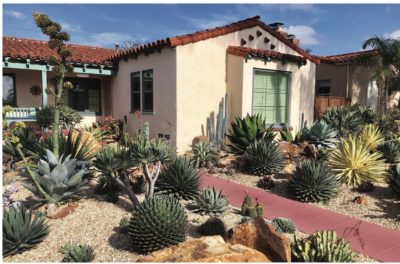
Agave garden by Jeremy Spath
"When the homeowner told Jeremy he was also an agave enthusiast and wanted to go for it, Jeremy almost fell to his knees and wept in gratitude and anticipation."
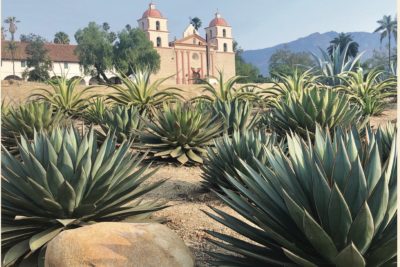
Agaves at Santa Barbara mission
"Although there were precious few agaves available in the early days of the missions (perhaps Agave americana and/or Agave sisalana had been carried north by then), the newly available species and hybrids shown here look very appropriate."
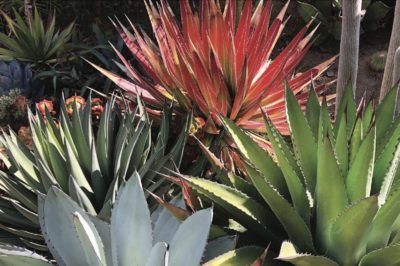
Certain agaves may turn red when dying
"In the same way some tree leaves take on warm colors in the fall, when agaves...focus all their remaining energy on the huge inflorescence, the resulting no-longer-needed chlorophyll cells break down, and the underlying warm-colored carotenoid pigments remain...a happy chemical result...sort of like a rainbow."
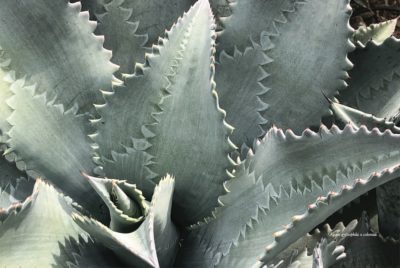
Imprinting on Agave leaves
"One of the most endearing traits of some agaves is the phenomenon of imprinting. This fantastic patterning is a result of the leaves being compressed together as they form...resulting in a very artful and eye-pleasing plant...specialized growth [is] similar to fossilized imprints... The fact that it becomes art is a whimsical bonus."
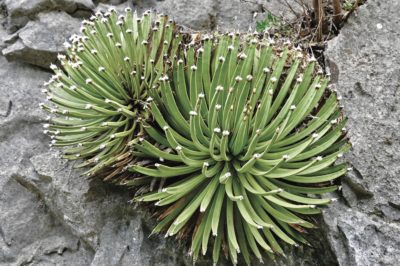
Agave albopilosa
"Outside of Monterrey in Nuevo Leon is a maze of limestone canyons that fan out of the earth. The incredibly steep slate gray walls...are inaccessible without climbing gear---a jet pack would be ideal. [This is] where Agave albopilosa grows. Tufts of hair on the tips of the leaves become saturated with moisture from fog, water then drips down the leaf, feeding the roots.
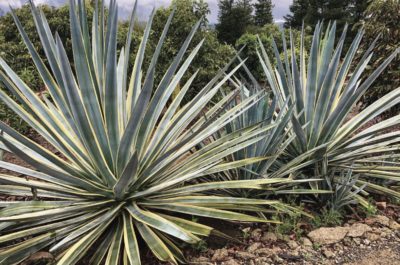
Agave tequilana 'Tequila Sunrise'
"This is the agave of distilled tequila fame...almost everyone, your humble authors included, usually pronounce the name wrong. Most of us say 'tuh- KEEL-ee-ah-nuh', but there is no 'i' after the 'l' - it should be 'tuh-keel-AH-nuh'."
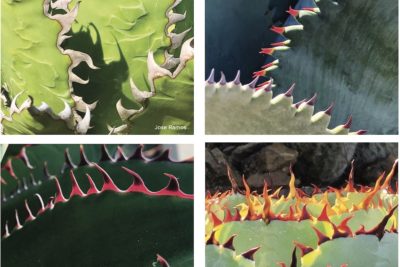
Teeth on agave leaf margins
"Agave edge-spines can somehow be simultaneously threatening, yet stunningly beautiful."
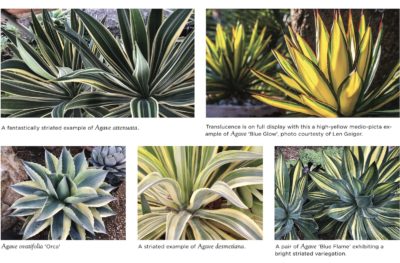
Examples of variegation of agaves
"Variegation...can manifest itself in myriad ways---orderly stripes, haphazard streaking, two- or three-tone variations, or blurry or milky yellows or whites."
Best Way to Get a Copy
As Jeff requests in the video, instead of getting the book from a large distributor (from which he and Jeremy receive very little), "try to buy it from the authors first if you can." Come by either nursery or order from them online.
Jeff Moore, Solana Succulents, 355 N. Hwy 101, Solana Beach, CA; solanasucculents@sbcglobal.net; 858/259-4568.
Jeremy Spath, Hidden Agave Nursery, Escondido, CA (by appointment only); email DeepOceanCurrents@gmail.com.
See Hidden Agave Nursery’s Rare Agaves
Hidden Agave Nursery is more than a source of rare and unusual agaves, it’s fast-tracking this popular succulent genus to its full potential. Owner Jeremy Spath specializes in species and cultivars that don’t get overly large, perform well in gardens, and are exceptionally beautiful. I share his fascination with
Agave Snout Weevil Prevention and Treatment
Agave snout-nosed weevil is a half-inch-long black beetle with a downward-curving proboscis that enables it to pierce an agave’s core, where it lays its eggs. Grubs hatch, consume the agave’s heart, then burrow into the soil to pupate.
Agaves: Uses, Photos, IDs and Varieties
With the exception of a few soft-leaved and variegated varieties, agaves want sun—the more the better in all but desert climates. Most are hardy to the mid- to high-20s F, and some go a lot lower. Sharp points at leaf tips and along leaf edges can make agaves treacherous. I snip about a quarter inch from leaves’ needlelike tips with garden shears.
The post New Must-Have Agave Book appeared first on Debra Lee Baldwin. Copyright © Debra Lee Baldwin.
from Debra Lee Baldwin https://ift.tt/2YO5K8v
via IFTTT

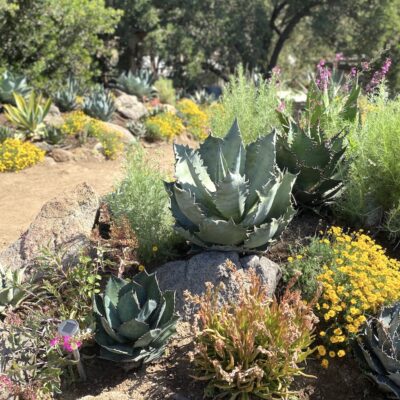
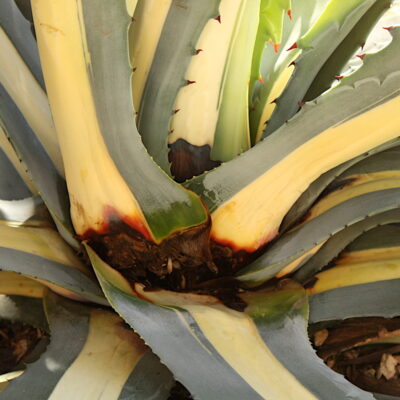
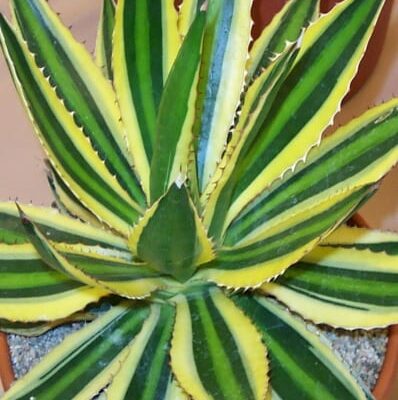
No hay comentarios:
Publicar un comentario